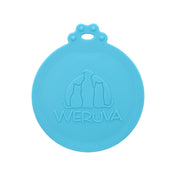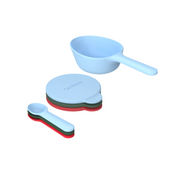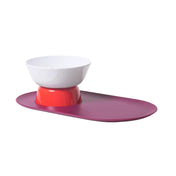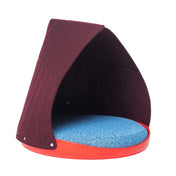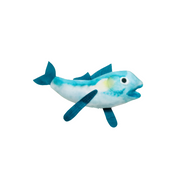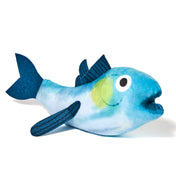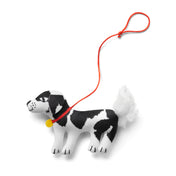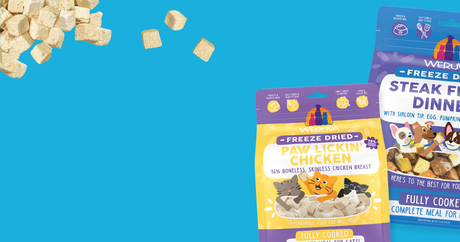Bringing a puppy home is an exciting and chaotic adventure. From wagging tails and curious sniffing to the occasional chewed-up shoe, there’s plenty of joy (and learning) ahead. But beyond the fun, raising a puppy requires commitment. Proper nutrition, socialization, and consistent training are essential to helping your pup grow into a confident, healthy adult dog.
This guide walks puppy owners through what to expect during your puppy’s first year, from growth milestones to choosing the best puppy food.
Puppy Development & Care Topics:
- Puppy Growth and Development
- When to Switch Puppy to Adult Food?
- Early Diet and Food Preferences
- Wet Food vs. Dry Food for Puppies
- How to Socialize Your Puppy
- Puppy Training and Setting Ground Rules
- Puppy Teething Troubles and Dental Care
- Overcoming Puppy Blues

Puppy Growth and Development
Puppies start out small and totally dependent on their mother. Within weeks, they open their eyes, begin walking, and show their unique personalities. Puppy growth varies by breed—small breeds may mature faster, while larger breeds often take longer, sometimes up to 18 months.
Regular checkups with your vet will help ensure your puppy grows at a healthy pace. A balanced diet and plenty of exercise will support your pup’s development during these crucial months.
When to Switch Puppy to Adult Food?
Puppy food is formulated with nutrients that support growth. As your puppy matures, they’ll need to transition to an adult dog food that maintains their health rather than supports long-term health rather than fueling growth.
Signs your puppy is ready to switch include:
- Slowed or plateaued growth
- Stabilized energy levels
- Reaching expected adult weight
Transition gradually over 7-10 days by mixing adult pet food with their puppy food to prevent digestive upset. For extra digestive support during this switch, try Pumpkin Patch Up! This easy-to-serve pumpkin supplement is rich in fiber and natural anti-inflammatories. It’s a gentle way to help your furry friend adjust to a new food while keeping their tummy happy.

Early Diet and Food Preferences
Puppies develop food preferences early, so introducing a variety of flavors and textures helps shape healthy eating habits. High quality wet puppy food provides balanced nutrition while making mealtime more exciting.
It may be tempting to choose a formula labeled “All Life Stages,” but these options are designed to meet the minimum requirements for a wide range of dogs, from growing puppies to seniors. That means they often miss the mark on the precise nutrition puppies truly need.
Feeding your puppy a formula specifically designed for their life stage is the best way to support growth and development. Puppy specific recipes contain the right balance of protein, fat, vitamins, and minerals to fuel their rapid growth and set the stage for a lifetime of health.
Weruva Puppy is made with boneless, skinless meats, minimal high-quality ingredients, and essential omegas to support brain and vision development. Prioritizing these nutrients now helps your puppy grow into a smart, healthy, happy adult dog.
Wet Food vs. Dry Food for Puppies
Choosing between wet dog food and dry dog food is one of the most common decisions new puppy owners face. While both options offer complete nutrition, wet food offers a few advantages, especially for young pups.
- Higher moisture supports hydration.
- Softer texture is easier for sensitive or developing teeth.
- More aroma and flavor can appeal to picky eaters.
Wet puppy food is a great way to support hydration and encourage healthy eating habits while serving a complete and balanced diet.
How to Socialize Your Puppy
The first few months of your puppy’s life are essential for shaping their temperament. The puppy socialization window (from about 3 to 16 weeks) is when puppies learn to navigate the world. Introducing them to new experiences, people, and animals helps build confidence and prevents fear-based behavioral issues later on.
Short car rides, pet-friendly store visits, and controlled interactions with well-mannered dogs can help your pup learn the world is a safe and exciting place. Using positive reinforcement, like treats and praise, encourages curiosity and builds trust.
Puppy Training and Setting Ground Rules
Puppy training is the foundation for a well-mannered dog. Starting early and staying consistent helps prevent problem behaviors while strengthening your bond.
- House Training: Begin as soon as your puppy comes home. Take them out frequently, especially after meals or naps, and reward them for going in the right spot.
- Crate Training: A properly sized crate offers a secure, quiet place for your puppy and can also support potty training.
- Obedience Training: Start with basic commands and build on new skills as they learn. Keep sessions under 10 minutes and end on a positive note to maintain engagement.
Avoid punishment; positive reinforcement works best for encouraging the behaviors you want to see.
Puppy Teething Troubles & Dental Care
If your puppy is chewing everything in sight, teething is likely the culprit. Teething begins around 3–4 weeks of age and continues until adult teeth are fully developed. During this time, you may notice increased chewing, sore gums, or drooling.
Providing the right chew toys can save your furniture (and fingers!) while helping soothe their discomfort. Frozen carrots, cold chew toys, and dental sticks can be especially helpful.
Gentle teeth brushing can help too. Not only does it massage sore gums during teething, but it also gets your pup used to a dental routine. Contrary to popular belief, kibble doesn’t clean teeth. Brushing your puppy’s teeth early on is the best way to promote lifelong dental health.

Overcoming Puppy Blues
Feeling overwhelmed? You’re not alone. The puppy blues, a phase of stress and doubt, often hits new pet parents. From choosing the best puppy food to accidents on the carpet and late-night whining, it’s normal to feel exhausted.
The key is patience and consistency. Establishing a routine, providing plenty of mental stimulation, and giving yourself breaks can ease the stress. Most importantly, remember that this phase doesn’t last forever. Soon enough, your puppy will settle in, and the hard work will pay off.
Raising a Happy and Healthy Puppy
Your puppy’s first year will be filled with milestones, from their first bark to their first successful potty training victory. Every moment, big or small, is part of the adventure. By providing the right nutrition, training, and care, you’ll help them grow into a happy, healthy adult dog.
Enjoy every moment of puppyhood, it goes by faster than you think!





